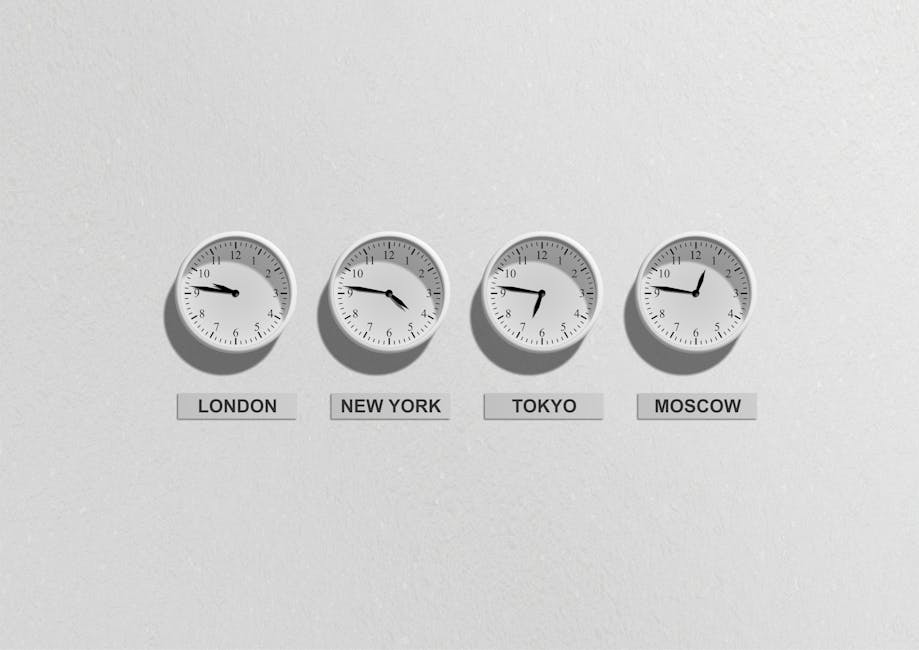Managing differences in opinions with friends can feel like walking a tightrope, but it’s an essential skill for maintaining strong and meaningful relationships. Disagreements are inevitable when two people bring their unique perspectives to the table. However, learning how to navigate these differences with empathy and respect can strengthen your bond rather than weaken it.
So, how do you handle those moments when you and your friend just don’t see eye to eye? Let’s dive into the art of managing differing opinions while keeping your friendship intact.
Key Takeaways
- Differences in opinions are natural and often stem from personal experiences and values.
- Healthy disagreements can lead to growth, understanding, and stronger relationships.
- Approaching conflicts with empathy, active listening, and respect is crucial.
- Managing emotional reactions and finding common ground can prevent conflicts from escalating.
- Setting boundaries and reflecting on your own opinions are vital for maintaining balance.
Understanding Differences in Opinions
Why Differences in Opinions Are Normal
The uniqueness of individual perspectives
Every person sees the world through their own lens. Your opinions are shaped by your upbringing, culture, and personal experiences. Naturally, your friend’s perspective might differ from yours, and that’s okay. Imagine how boring life would be if everyone thought the same way!
The role of personal experiences and values
Your values and experiences act like a compass, guiding your beliefs and decisions. For example, a friend who grew up in a big city might have different views on community life compared to someone from a small town. These differences don’t make one opinion better than the other—they simply reflect diverse life paths.
The Importance of Healthy Disagreements
Encouraging growth and learning
Disagreements can be opportunities in disguise. They challenge you to think critically and consider viewpoints you might not have encountered otherwise. It’s like a mental workout for your brain!
Strengthening relationships through understanding
When handled well, disagreements can deepen your connection with a friend. By listening and understanding their perspective, you show that you value them as a person, even if you don’t agree.

Approaching Differences with Empathy
Listening Actively to Understand
Avoiding assumptions about intent
Jumping to conclusions about why your friend thinks a certain way can lead to unnecessary conflict. Instead, approach the conversation with curiosity. Ask yourself, “What’s behind their opinion?”
Asking clarifying questions
If something doesn’t make sense, ask! Questions like, “Can you explain what you mean by that?” show that you’re genuinely interested in understanding their perspective.
Acknowledging and Validating Feelings
Recognizing emotions behind opinions
Sometimes, opinions are tied to deep emotions. For instance, a friend’s stance on a topic might be rooted in a personal experience. Acknowledging their feelings can make them feel heard and respected.
Showing respect for differing viewpoints
You don’t have to agree with someone to respect their opinion. A simple “I see where you’re coming from” can go a long way in maintaining harmony.

Managing Emotional Reactions
Shifting Out of Reactivity
Taking a moment to pause before responding
When emotions run high, it’s easy to say something you’ll regret. Take a deep breath or count to ten before responding. This pause can help you approach the situation with a clear head.
Practicing mindfulness to stay calm
Mindfulness techniques, like focusing on your breath or grounding yourself in the present moment, can help you stay calm during heated discussions. If you’re curious about managing emotions during conflicts, check out these tips.
Avoiding Defensive or Combative Responses
Focusing on the issue, not the person
It’s important to separate the opinion from the individual. Instead of saying, “You’re wrong,” try, “I see it differently.” This keeps the conversation constructive.
Using “I” statements to express your perspective
Statements like “I feel…” or “I think…” are less likely to put your friend on the defensive. They shift the focus to your feelings rather than placing blame.

Finding Common Ground
Identifying Shared Values or Goals
Highlighting areas of agreement
Even in the midst of a disagreement, there’s often some common ground. Focus on what you both agree on to build a foundation for understanding.
Building on mutual understanding
Once you’ve identified shared values, use them as a starting point for resolving the disagreement. For example, if you both value honesty, you can agree to have an open and respectful conversation.
Agreeing to Disagree Respectfully
Accepting that not all opinions need alignment
It’s okay to walk away from a conversation without reaching a consensus. Sometimes, agreeing to disagree is the best solution.
Maintaining respect despite differences
Respect is the glue that holds friendships together. Even if you don’t see eye to eye, showing respect ensures that your friendship remains intact.

Strengthening the Friendship Despite Differences
Prioritizing the Relationship Over the Disagreement
Focusing on the bigger picture of the friendship
Ask yourself, “Is this disagreement worth jeopardizing our friendship?” Most of the time, the answer is no.
Letting go of minor conflicts
Not every disagreement needs to be resolved. Sometimes, it’s better to let go and move on.
Learning from Each Other’s Perspectives
Gaining new insights through open dialogue
Your friend’s perspective might open your eyes to something you hadn’t considered before. Embrace these moments as opportunities to grow.
Appreciating diversity in thought and opinion
Differences make friendships richer. They add depth and variety to your conversations and experiences.

Setting Boundaries When Necessary
Recognizing When Opinions Become Harmful
Identifying toxic or manipulative behavior
If a friend’s opinions cross the line into harmful territory, it’s important to address the issue. Toxic behavior can damage your mental and emotional well-being.
Protecting your mental and emotional well-being
Setting boundaries isn’t about shutting people out—it’s about protecting yourself. Learn more about setting healthy boundaries.
Communicating Boundaries Clearly
Explaining your limits respectfully
Be honest and direct about your boundaries. For example, “I’m not comfortable discussing this topic” is a clear and respectful way to set a limit.
Ensuring mutual understanding of boundaries
Make sure your friend understands and respects your boundaries. This mutual understanding is key to maintaining a healthy friendship.

Reflecting on Your Own Opinions
Evaluating the Influence of Others’ Opinions
Avoiding over-reliance on external validation
It’s easy to let others’ opinions sway you, but it’s important to stay true to yourself. Trust your own judgment and values.
Trusting your own judgment and values
Your opinions matter just as much as anyone else’s. Don’t be afraid to stand firm in your beliefs.
Balancing Openness with Self-Confidence
Being open to constructive feedback
Feedback from friends can help you grow, but it’s okay to disagree if their advice doesn’t align with your values.
Staying true to your core beliefs
While it’s important to be open-minded, don’t compromise your core beliefs to please others.
Seeking External Support if Needed
Consulting a Neutral Third Party
Mediating conflicts with the help of a trusted friend
Sometimes, a neutral third party can help mediate a disagreement. This could be another friend who understands both perspectives.
Seeking professional advice if necessary
If conflicts become too overwhelming, consider seeking advice from a counselor or mediator.
Building a Supportive Network
Surrounding yourself with understanding individuals
Having a supportive network can make it easier to handle disagreements. Surround yourself with people who respect and value your opinions.
Learning from others’ experiences with similar challenges
Hearing how others have handled similar situations can provide valuable insights. For instance, this discussion on differing opinions offers some great perspectives.

Differences in opinions don’t have to drive a wedge between you and your friends. With empathy, respect, and a willingness to listen, you can turn disagreements into opportunities for growth and deeper connection. After all, friendships are about celebrating what makes each of you unique while finding common ground where it matters most.
FAQ: Navigating Differences in Opinions with Friends – A Gentle Guide to Harmonious Relationships
Why is it important to address differences in opinions with friends?
Addressing differences helps maintain trust and respect in friendships. It fosters open communication and ensures that both parties feel heard and valued, strengthening the bond over time.
How can I approach a friend when we disagree on something?
Start by choosing a calm moment to talk. Use ‘I’ statements to express your feelings without assigning blame, and focus on understanding their perspective rather than proving your point.
What if my friend gets defensive during the conversation?
Stay calm and patient. Acknowledge their feelings and reassure them that your intent is to understand, not to argue. Sometimes, taking a short break can help diffuse tension.
Should I always try to resolve differences immediately?
Not necessarily. Sometimes, giving each other space to process emotions can lead to a more productive discussion later. Timing is key to effective communication.
How can I ensure that our conversation remains respectful?
Set boundaries for the discussion, such as avoiding personal attacks or raising voices. Focus on the issue at hand and practice active listening to show respect for their viewpoint.
What if we can’t come to an agreement?
It’s okay to agree to disagree. Friendships don’t require complete alignment on every issue. Respecting each other’s differences is a sign of maturity and mutual understanding.
Can differences in opinions strengthen a friendship?
Yes, they can! Healthy disagreements encourage growth, broaden perspectives, and deepen the connection when handled with respect and empathy.
How do I know if a difference in opinion is damaging the friendship?
If disagreements consistently lead to hostility, resentment, or avoidance, it may be a sign of deeper issues. Openly discussing these feelings can help determine the next steps for the friendship.
What role does empathy play in managing differences with friends?
Empathy allows you to see the situation from your friend’s perspective, fostering understanding and reducing conflict. It’s a cornerstone of healthy and meaningful relationships.
Are there situations where it’s best to let go of a friendship due to differences?
Yes, if the differences lead to constant negativity, disrespect, or harm, it may be healthier to part ways. Prioritize your well-being while wishing them the best.



